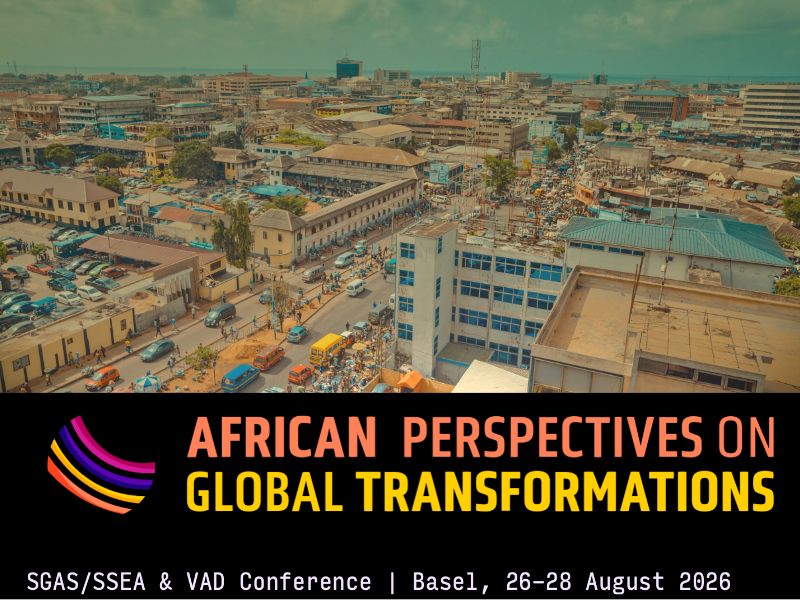
Organisée par la Société suisse d'études africaines, les prochaines Rencontres internationales d'études africaines auront lieu à Bâle du 26 au 28 août 2026.
L'appel à communications est ouvert jusqu'au 11 janvier 2026.
Christine Le Quellec Cottier (PEALL, UNIL) et Isabelle Chariatte (Uni Bâle) proposent en particulier un panel littéraire intitulé Sub-Saharan Literary Cosmopolitanism: Toward a New ‘Possible World’?
Voir le détail sur le site de l'événement et dans l'appel reproduit ci-dessous (en anglais) :
Overview
The Francophone corpus in this panel is not defined by authors’ origin, but by a textual scenography shaped by dominant voices (characters or narrators) identified as Sub-Saharan African or of African descent. These voices emerge through “cultural commonalities” (endogenous knowledge, onomastics, belief systems, human or non-human, etc.), and may appear anywhere, on or of the African continent. This “Africa in the world” is often represented through migration or migrance, implying an unstable relationship to the world, where subjects (human or not) are aFected by their environment.
Proposal
This configuration challenges the idea of “belonging to a global citizenship,” seen as a cosmopolitanism in which the subject shapes “a common humanity, a history and a future that we can offer each other in sharing” (Achille Mbembe, https://africultures.com/afropolitanisme-4248/). Paul Gilroy in Black Atlantic. Modernity and Double consciousness (New York, Harvard UP., 1993 [ed. française : Paris, Amsterdam, 2017, p. 229)] critiques the assumption that “whites travelled voluntarily and recreationally, while Blacks only travelled as refugees, migrants or slaves.” Our aim is to examine contemporary literature through this lens and move beyond the category of migrance to analyze texts that articulate forms of cosmopolitanism, signs of plural cultural
experiences enabled by formal strategies.
Axes of reflection may include (but are not limited to):
- Cosmopolitanism, like “Afropolitanism” (Mbembe), considered not as elitist or Eurocentric, but as a vernacular skill – a co-production enabling mutual recognition through exchange.
- How cosmopolitanism frames displacements (geographical, spiritual, cultural, etc.) and their aesthetic and political implications.
- Whether such autonomous mobility is only possible for Sub-Saharan characters situated outside Europe, such as in Africa or South America.
Submission details
Please send an abstract (max. 250 words) and a short biographical note (100 words), including your academic status and institutional afiliation, by 11 January 2026 on the conference page.
Each presentation will last 15 minutes, followed by a collective discussion.
For further information, please contact christine.lequelleccottier@unil.ch and Isabelle.chariatte@unibas.ch